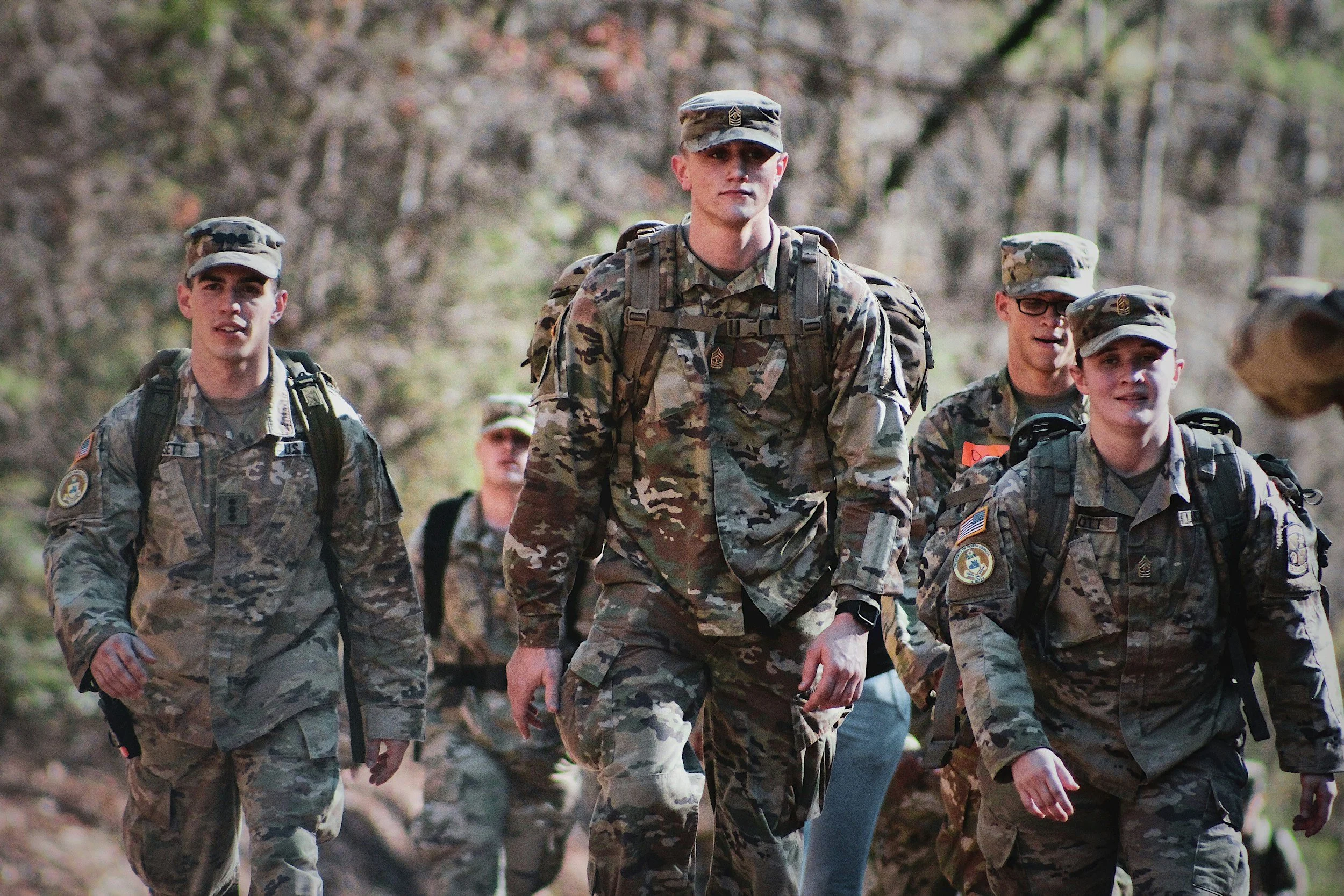Cruelty Disguised as Discipline: Pete Hegseth’s Memorandum for the US Military
During a speech to hundreds of top military officials in September 2025, the Secretary of “War,” Pete Hegseth, argued that it is “completely unacceptable to see fat generals and admirals” and “overweight troops” in the military. (Watch the video here.)
This commentary comes late due to my delay in watching his speech. I had to prepare myself before watching the whole thing—take a walk, breathe, meditate–but I made myself because I knew Hegseth’s words kicked off a round of public discussion about weight and fitness.
Nineteen minutes into his forty-five-minute address, my nervous system was on high alert. While he didn’t use the exact phrase “no fatties in the military,” that was the distillation of his message that afterward shot through the media and social media. He said it as if it were common sense, a simple matter of physical readiness.
But his speech wasn’t common sense—it was cruelty disguised as discipline.
His words weren’t just inaccurate; they were demeaning. They reinforced the same old stereotypes about people in larger bodies: lazy, weak, undisciplined. It was schoolyard bullying in a uniform. I expect more from any leader—especially one charged with shaping public values around service, respect, and resilience.
I’ve spent twenty-five years training in martial arts, and I’ve been outrun, out-paced, and out-skilled by training partners in larger bodies. If there’s one thing decades on the mat have taught me, it’s that physical ability has nothing to do with a number on a scale. Power comes from practice, not from size.
My martial arts training partner (and dear friend) and I surveyed our martial arts community about weight stigma. The overwhelming response: martial arts increases people’s confidence in their bodies and their sense of strength.
One participant wrote, “Training has taught me that it doesn’t matter what kind of body you have if you know how to use it.”
That’s the heart of true fitness—knowing your body and learning to move with it, not against it.
Yet stigma persists, even in communities that should know better. One seasoned martial artist—an instructor with multiple black belts—recounted visiting another school. When the head instructor asked about their training goals, they explained their years of experience. The instructor clapped them on the back and said, “Don’t worry, we’ll get the weight off you.” This casual condescension reveals how deeply anti-fat bias has shaped our understanding of health and ability.
This bias has a long history.
The Body Mass Index, or BMI, was invented not by a doctor but by a nineteenth-century Belgian mathematician named Adolphe Quetelet. It was a population-level statistic, never meant to assess individual health. But in the twentieth century, insurance companies adopted it as a quick risk-scoring tool—and by the 1990s, BMI had become a moral metric, a weapon in the so-called “war on obesity.” As scholars like Sabrina Strings have shown in her 2019 book, Fearing the Black Body, it’s a system rooted in racism and classism, not science.
Today we know better. Research on the “obesity paradox” shows that people across the weight spectrum develop similar diseases—and that thinner individuals sometimes fare worse. People in larger bodies can be healthy and fit without losing weight. Research also shows correlations with weight and health citing that folks with higher weight have poor health.
Yet if we take a deeper dive in these studies, we would find underlying factors that contribute to poor health outcomes for folks in larger bodies. These factors include chronic dieting, weight loss and weight regain, weight stigma, medical establishments delaying medical treatments until after patients lost weight. These are the factors that contribute to poor health outcomes.
So, going back to the military and leaders…
If the military truly values readiness, and if we truly value justice, then we must redefine fitness. Strength is not a body type; it’s a practice of discipline, endurance, courage, and rest. It is also a practice of knowing your limits and having value and respect for your body. Martial arts teaches that lesson every day. It’s time our leaders learned it too.
References
BMI: A Poor Metric for Measuring People’s Health Say Experts
Redpath, F. M. (2023): Abolish the body mass index: a historical and current analysis of the traumatizing nature of the BMI. Tapestries: Interwoven voices of local and global identities, 12(1), 12.
Fearing the Black Body: The Racial Origins of Fat Phobia (2019) by Sabrina Strings
Nutter, S., Russell-Mayhew, S., Ellard, J. H., & Arthur, N. (2020). Reducing unintended harm: Addressing weight bias as a social justice issue in counseling through justice motive theory. Professional Psychology: Research and Practice, 51(2), 106–114.
RESOURCES
Ragan Chastain: Weight and Healthcare Substack
HAES Health Sheets: weight -neutral, evidence-based care options for common health conditions
FreeFigure.org: Fat Census: analytical tool created to ask fat people about their experiences for data on fatphobia through an intersectional lens:
